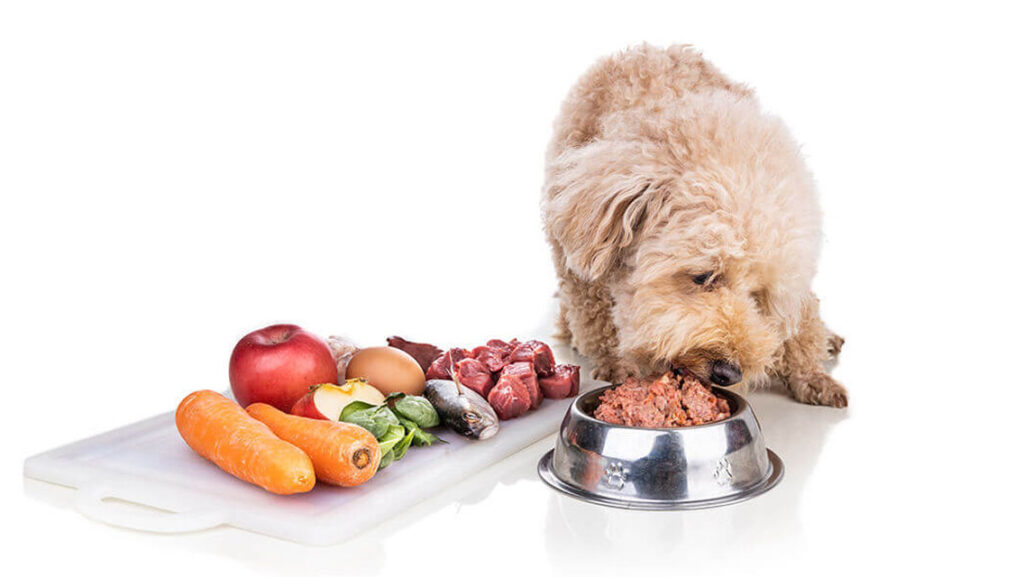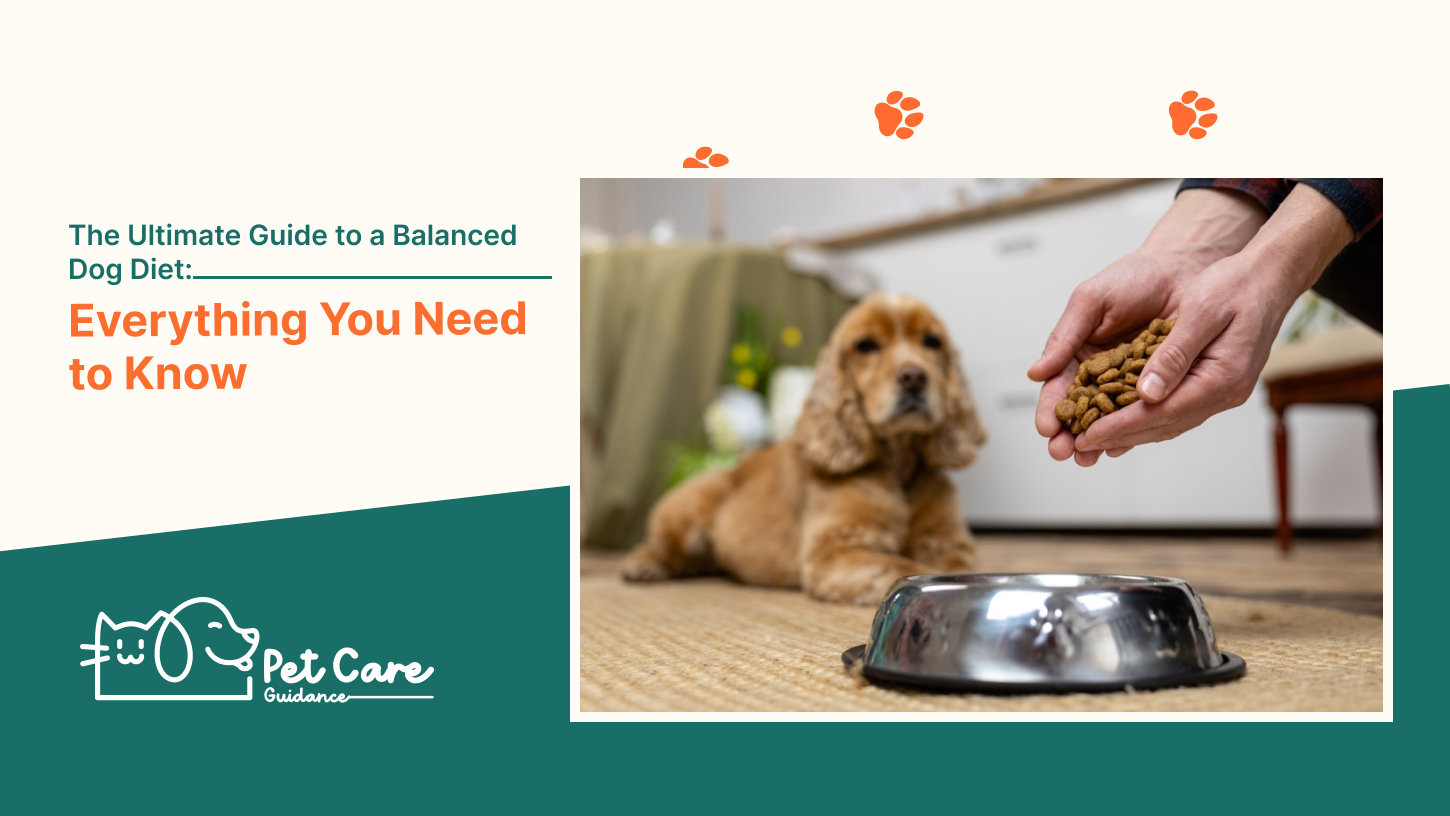The Ultimate Guide to a Balanced Dog Diet covers everything you need to know about providing your furry friend with the right nutrition. From understanding the six basic nutrients required by dogs to deciphering pet food labels and making homemade dog food, this guide will help you ensure that your dog’s diet is complete and balanced.
It’s crucial to feed your dog the highest-quality food you can afford, taking into account their specific nutritional needs at every stage of life. With this guide, you’ll have all the information you need to keep your dog healthy and thriving through a well-balanced diet.
Understanding The Importance Of A Balanced Dog Diet
| Understanding the Importance of a Balanced Dog Diet |
| The role of nutrition in a dog’s overall health |
| How a balanced diet can improve a dog’s quality of life |
A balanced diet plays a crucial role in maintaining a dog’s overall health and well-being. The right nutrition provides essential nutrients that support the body’s basic functions. These nutrients include water, proteins, fats, carbohydrates, minerals, and vitamins. By ensuring a dog’s diet contains the right balance of these nutrients, you can help improve their quality of life.
Proper nutrition helps dogs maintain a healthy weight, supports their immune system, and promotes strong muscles and bones. It can also contribute to a shiny coat and healthy skin. Additionally, a balanced diet can help prevent certain health issues, such as obesity, allergies, and digestive problems.
When selecting dog food, it’s important to look for high-quality options that provide a complete and balanced diet. This means the food contains all the necessary nutrients in the right proportions. Consulting with a veterinarian can help determine the specific dietary needs of your dog based on factors like age, breed, and any existing health conditions.

Essential Nutrients For A Balanced Dog Diet
The six basic nutrients for dogs:
The functions of each nutrient in a dog’s body include:
|
Creating A Balanced Dog Diet
Creating a balanced dog diet involves determining the right portion sizes for your dog and choosing high-quality dog food. Determining the right portion sizes is important to ensure that your dog is getting the right amount of nutrients without overeating.
This can be based on factors such as age, size, activity level, and overall health. Choosing high-quality dog food is crucial as it provides the necessary nutrients for your dog’s well-being. Look for dog food with real meat as the first ingredient and minimal fillers and artificial additives.
Additionally, incorporating homemade meals and treats into your dog’s diet can provide variety and nutritional benefits. Supplementing with additional nutrients may be necessary in some cases, especially if your dog has specific dietary needs or restrictions.
Consult your veterinarian for guidance on the proper supplements for your dog’s diet. Remember to always provide fresh water and monitor your dog’s weight and overall health to ensure they are thriving on their balanced diet.
Understanding Dog Food Labels
Deciphering the ingredients list on dog food labels can be a daunting task for pet owners. It’s important to identify common additives and fillers to avoid in order to ensure a balanced diet for your dog. Look out for ingredients such as corn, wheat, and soy, as these are often used as cheap fillers that offer little nutritional value. Instead, opt for dog food that contains high-quality sources of protein, such as chicken or lamb.
Additionally, pay attention to the order in which ingredients are listed on the label. The first few ingredients should be whole meat sources, rather than meat by-products or meals. This indicates a higher quality food that meets your dog’s nutritional requirements.
| Additives and Fillers to Avoid | Examples |
|---|---|
| Corn | Corn gluten meal, corn syrup, corn starch |
| Wheat | Wheat flour, wheat bran, wheat germ |
| Soy | Soybean meal, soy flour, soybean oil |
By understanding how to decipher dog food labels, you can make informed decisions about the food you choose to feed your canine companion, ensuring they receive a balanced diet that meets their nutritional needs.
Special Considerations For A Balanced Dog Diet
The special considerations for a balanced dog diet include specific dietary needs for puppies, adult dogs, and senior dogs. Puppies require a diet that is higher in protein and fat to support their rapid growth and development.
Adult dogs need a balanced diet that provides the right amount of protein, fat, carbohydrates, minerals, and vitamins to maintain their overall health. Senior dogs may have specific dietary needs related to their age, such as lower calorie intake to prevent obesity and joint support supplements to promote mobility.
Addressing allergies or sensitivities in a dog’s diet is also important. Some dogs may have food allergies or sensitivities, which can manifest as digestive issues or skin problems. In these cases, a hypoallergenic diet or an elimination diet may be necessary to identify and avoid the allergen.
Adjusting the diet for dogs with certain health conditions is another consideration. For example, dogs with kidney disease may require a low-protein diet, while dogs with diabetes may need a diet that is low in carbohydrates and high in fiber.
In conclusion, understanding the special considerations for a balanced dog diet is essential for maintaining the health and well-being of your furry friend. By providing the right nutrients and addressing individual needs, you can ensure that your dog stays healthy and happy throughout their life.
Signs Of A Balanced Dog Diet
Signs of a balanced dog diet include a healthy coat and skin, maintaining a healthy weight, consistent energy levels, good digestion and stool quality, and a strong immune system. A healthy coat and skin indicate that the dog is receiving the right nutrients, such as Omega-3 fatty acids, which promote skin health. Maintaining a healthy weight is important to prevent obesity and related health issues.
Consistent energy levels indicate that the dog is getting enough carbohydrates for energy. Good digestion and stool quality indicate that the dog is receiving enough fiber and is properly absorbing nutrients. And a strong immune system is crucial for overall health and to fight off infections and diseases.
A balanced diet for dogs should include the six essential nutrients: water, proteins, fats, carbohydrates, minerals, and vitamins. Providing high-quality dog food that meets these nutritional requirements is important for your dog’s overall health and well-being.

Monitoring And Adjusting A Dog’s Diet
| Monitoring and Adjusting a Dog’s Diet |
|
Regular veterinary check-ups and assessments are important in monitoring a dog’s diet. These check-ups help in recognizing signs of nutritional imbalances or deficiencies. By regularly visiting the vet, you can ensure that your dog’s diet is meeting their specific needs.
|
Frequently Asked Questions For The Ultimate Guide To A Balanced Dog Diet: Everything You Need To Know
What Is A Complete Balanced Diet For Dogs?
A complete balanced diet for dogs includes water, proteins, fats, carbohydrates, minerals, and vitamins. These essential nutrients support the basic functions of the dog’s body. It is important to feed your dog high-quality food that contains meat, vegetables, grains, and fruits.
Also, ensure that the food has a good balance of all the essential amino acids.
What Is The 25 Rule For Dog Food?
The 25 rule for dog food refers to the guideline of ensuring that dog food contains at least 25% protein. This rule helps to ensure that dogs receive an adequate amount of protein in their diet, which is essential for their overall health and well-being.
Is 30% Protein Too Much For A Dog?
No, 30% protein is not too much for a dog. Dogs require protein in their diet to support their overall health and well-being. However, it is important to consult with a veterinarian to determine the appropriate amount of protein for your specific dog’s needs and any underlying health conditions.
Faq 1: What Is A Complete Balanced Diet For Dogs?
A complete balanced diet for dogs includes all the essential nutrients such as water, proteins, fats, carbohydrates, minerals, and vitamins. These nutrients are necessary for the dog’s overall body functions. [Source](https://vcahospitals. com/know-your-pet/nutrition-general-feeding-guidelines-for-dogs)
Conclusion
To ensure your furry friend stays healthy and balanced, it is crucial to provide them with a well-rounded diet. Remember that a complete and balanced dog diet consists of essential nutrients like proteins, fats, carbohydrates, minerals, and vitamins. By feeding your dog high-quality food and understanding their nutritional needs at every stage of life, you can help keep them in optimal health.
So, choose wisely and prioritize their well-being with a thoughtful and balanced diet.


